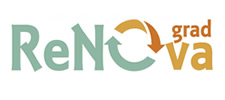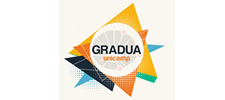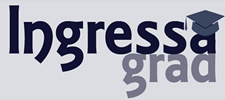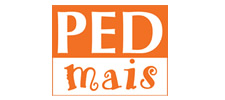[EA]2: an initiative for improving undergraduate education
Description of the problem addressed by [EA]2
Two components articulate in the process of teaching and learning: emphasis may be on the teacher, concerning organization and presentation of content, teacher’s performance in the classroom, and student evaluation; on the other hand, the emphasis may lie on the student (student-centered teaching), in which the main concern is to provide the necessary support for the student to learn, with the aim of developing his/her own concepts.
Even though individual courses may include planned actions to guarantee integration between these two components, it is much more difficult to articulate them in the rather diverse university setting. In general, institutes and teaching areas tend to solve teaching/learning problems in isolation, often fostering discussions within the realms of individual courses, while few actions exist that integrate the several disciplines and fields of knowledge composing a specific curriculum or that integrate the process of teaching and learning at a university-wide level.
Moreover, the use of active learning approaches is still limited to only a handful of courses in our university, and there are few examples of entire pedagogical projects that were conceptualized based on modern teaching/learning methods. Although the value of classical teaching strategies is undisputed, we consider the use of active learning, in its many formats, extremely positive and much needed, especially in face of our rapidly changing educational clientele and due to the current university student profile.
Description of [EA]2 coverage and experience
With the goal of improving the quality of undergraduate teaching-learning in our institution, we created [EA]2, an administrative and academic branch of the Deanship for Undergraduate Studies (Pró-Reitoria de Graduação – PRG) at the University of Campinas (UNICAMP), Campinas, SP, Brazil.
[EA]2 is an acronym for ‘Espaço de Apoio ao Ensino e Aprendizagem’, which literally translates as ‘Support Space for Teaching and Learning’. Our actions are centered around teacher professional development through effective support to the teacher’s practice and formation; additionally, we participate in programs that aim at evaluating undergraduate education more broadly at the university level.
Since its inception, [EA]2‘s actions were planned to reach the entire academic fabric of undergraduate education at UNICAMP, including 66 undergraduate concentration areas ranging from Arts and Humanities to Health and Biological Sciences, Chemistry, Physics, Mathematics, Technology, and Engineering. [EA]2 impacts more than 15,000 undergraduate students each year, making it one of the most far reaching academic initiatives in our university.
[EA]2 objectives
The main objectives of [EA]2 are to improve undergraduate education throughout UNICAMP’s several academic sectors, and to contribute to professional development of faculty, teachers and staff, and to student training. We expect that these goals will be achieved through the following specific objectives:
- Provide guidance to undergraduate coordinators and steering committees in the creation of pedagogical projects aligned with modern teaching and learning practices, and in their pursuit of academic excellence in student formation
- Provide pedagogical advice and guidance to teachers
- Provide technical and theoretical training to lecturers and assistants
- Promote and disseminate events in the areas of teaching theory and technology, higher education pedagogy, evaluation of teaching and learning, philosophy of teaching, and other themes that may be of interest to educational staff and faculty
- Collaborate with the implementation and standardization of a university-wide system for evaluation of teaching and learning
[EA]2 strategies and actions
A number of different Programs were created to reach the aforementioned goals:
 (1) “RenovaGrad”: Support Program for Undergraduate Coordinators and Steering Committees
(1) “RenovaGrad”: Support Program for Undergraduate Coordinators and Steering Committees
Audience: Coordinators of undergraduate studies, undergraduate steering committees, and secretarial staff
Actions: (a) Hands-on workshops to catalyze the evaluation of current Undergraduate Curricula and to enable coordinators to perform the necessary changes towards modern degrees that include active learning student-centered strategies, curriculum flexibility, integration of different disciplines, social commitment, creativity, leadership, entrepreneurship, and teamwork.
(b) Lectures and roundtable panels to discuss higher education and the challenges for improving undergraduate curricula.
(c) Personalized support for undergraduate coordinators, with the goal of orienting discussion on Pedagogical Projects and the creation of faculty committees to foster university-wide changes in curriculum.
 (2) “GraduaUNICAMP”: Program for Innovation of Education Strategies
(2) “GraduaUNICAMP”: Program for Innovation of Education Strategies
Audience: Teachers and Lecturers
Actions: Courses, workshops and production of online material (videos and text) on the subjects of:
(a) university pedagogy and educational strategies;
(b) active teaching & learning strategies (Flipped Classroom, Problem-based learning, Project-based learning, Peer Learning, etc.);
(c) teaching-support tools, including virtual learning environments (Moodle, Google Classroom, Schoology), Clicker and similar tools, Prezi, video production and editing, Youtube channels, games, podcasts, MOOCs, etc.
 (3) “IngressaGrad”: Special Program for Teachers of Freshman Students
(3) “IngressaGrad”: Special Program for Teachers of Freshman Students
Actions: Given the increasing heterogeneity of the incoming student population, the program aims at giving teachers of freshman students the necessary tools and knowledge to cope with demands related to their integration into the university environment, academic performance, and development of commitment with their undergraduate courses and training.
 (4) “PED+”: Special Program for Teaching Assistants
(4) “PED+”: Special Program for Teaching Assistants
Audience: Graduate students in the Teaching Assistant Program (PED), run by the Deanship of Graduate Studies at UNICAMP
Actions: Long duration workshops to provide training opportunities for Teaching Assistants, in order to construct their identity as university teachers and to enable them to act effectively in the learning process of undergraduate students together with faculty professors and lecturers.
Description of the innovative nature of [EA]2
Very few instances existed in our institution that sought to enhance curricular structure and pedagogical projects by inserting modern elements of active learning and student-centered teaching, and most them were done in isolation. We consider [EA]2 to be an innovative initiative, because it offers a rare opportunity for the many players in the university environment (faculty professors, lecturers, teaching assistants, undergraduate coordinators, steering committees, and administrative personnel) to receive support and training in a coordinated fashion, with the major goal of promoting large-scale improvement in the university’s undergraduate education system.
Results and effects of [EA]2
Most of the Programs under the umbrella of [EA]2 were created only recently, but we anticipate that these actions will promote changes in all 66 undergraduate curricula in the next 2 years, which will be evaluated via a number of objective indicators, including the number of courses that base their strategies on active learning, number of degrees that allow flexible curricular paths to the student, diversification of courses that integrate different disciplines and areas of knowledge, multiplication of actions that lead to social commitment, and the introduction of elements that foster the students’ creativity, leadership, and teamwork in the university environment. Most of these actions are expected to produce effective results within the next couple of years, but their consequences will certainly resonate for the next decade, in what we anticipate will become the most significant and long-lasting changes experienced by undergraduate education at our university in decades.





